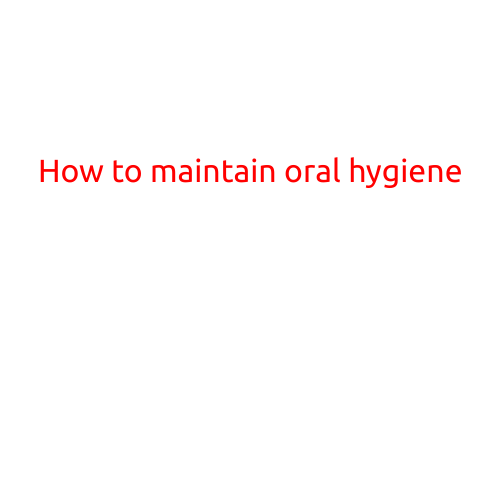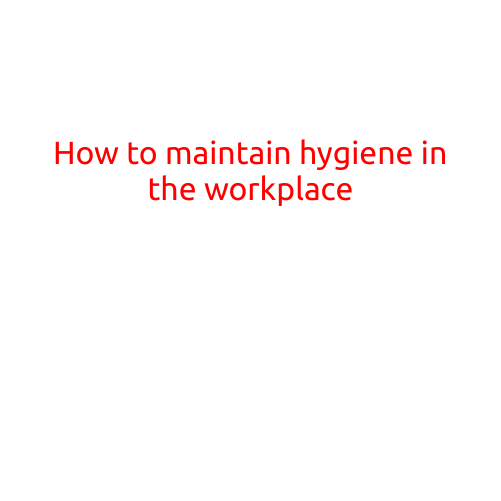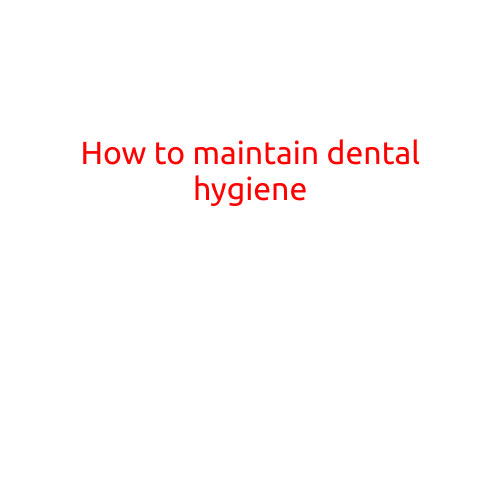
How to Practice Good Hygiene Habits
Good hygiene habits are essential for maintaining a healthy and clean body. Practicing good hygiene habits can help prevent the spread of illnesses, reduce the risk of infections, and even boost your self-confidence. In this article, we will discuss the importance of good hygiene habits and provide tips on how to practice them in your daily life.
Why Are Good Hygiene Habits Important?
Good hygiene habits are crucial for several reasons:
- Preventing the Spread of Illnesses: Good hygiene habits can help prevent the spread of illnesses by reducing the amount of bacteria and viruses that can enter your body.
- Reducing the Risk of Infections: Practicing good hygiene habits can reduce the risk of infections, such as skin infections, urinary tract infections, and respiratory infections.
- Boosting Self-Confidence: Good hygiene habits can boost your self-confidence and make you feel more comfortable and confident in your own skin.
- Maintaining Overall Health: Good hygiene habits can also contribute to overall health by reducing the risk of chronic diseases, such as heart disease and diabetes.
Tips on How to Practice Good Hygiene Habits
- Wash Your Hands Frequently: Washing your hands regularly is one of the most effective ways to prevent the spread of illnesses. Make sure to wash your hands:
- Before eating
- After using the bathroom
- After blowing your nose, coughing or sneezing
- After touching animals or their waste
- After being in contact with someone who is sick
- Shower or Bathe Regularly: Showering or bathing regularly can help keep your body clean and free of bacteria.
- Use Deodorant or Antiperspirant: Using deodorant or antiperspirant can help keep your body odor under control and prevent sweat stains.
- Brush and Floss Your Teeth Regularly: Brushing and flossing your teeth regularly can help prevent tooth decay and gum disease.
- Clean Your Ears and Nose: Cleaning your ears and nose regularly can help prevent earwax buildup and keep your nose free of mucus and debris.
- Wear Clean Clothes: Wearing clean clothes can help prevent the spread of illnesses and keep your body feeling fresh and clean.
- Get Enough Sleep: Getting enough sleep is essential for maintaining good hygiene habits. When you are well-rested, you are more likely to feel motivated to maintain good hygiene habits.
- Practice Good Foot Hygiene: Keeping your feet clean and dry can help prevent fungal infections, such as athlete’s foot.
- Use a Humidifier: Using a humidifier can help keep your skin moisturized and prevent dryness and irritation.
- Seek Medical Attention When Necessary: If you experience any symptoms of illness or infection, seek medical attention immediately. Early treatment can help prevent complications and reduce the risk of long-term damage.
Conclusion
Practicing good hygiene habits is essential for maintaining good health and preventing the spread of illnesses. By following the tips outlined in this article, you can keep yourself and others healthy and free of illness. Remember to prioritize good hygiene habits in your daily life and seek medical attention if you experience any symptoms of illness or infection. With good hygiene habits, you can feel confident and comfortable in your own skin.





